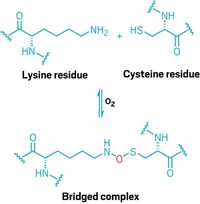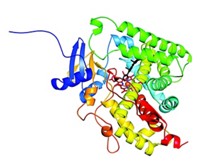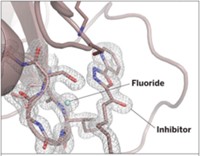Advertisement
Grab your lab coat. Let's get started
Welcome!
Welcome!
Create an account below to get 6 C&EN articles per month, receive newsletters and more - all free.
It seems this is your first time logging in online. Please enter the following information to continue.
As an ACS member you automatically get access to this site. All we need is few more details to create your reading experience.
Not you? Sign in with a different account.
Not you? Sign in with a different account.
ERROR 1
ERROR 1
ERROR 2
ERROR 2
ERROR 2
ERROR 2
ERROR 2
Password and Confirm password must match.
If you have an ACS member number, please enter it here so we can link this account to your membership. (optional)
ERROR 2
ACS values your privacy. By submitting your information, you are gaining access to C&EN and subscribing to our weekly newsletter. We use the information you provide to make your reading experience better, and we will never sell your data to third party members.
Synthesis
Normal And Mutant HIV Protease Active States Look The Same
Transition-state structures could make good drug targets that overcome protease inhibitor drug resistance
by Celia Henry Arnaud
April 16, 2012
| A version of this story appeared in
Volume 90, Issue 16
Native and drug-resistant HIV-1 proteases have similar transition states, a finding that indicates protease inhibitors targeting transition-state interactions should work against both native HIV-1 protease and mutated versions (Proc. Natl. Acad. Sci. USA, DOI: 10.1073/pnas.1202808109). Vern L. Schramm and coworkers at Albert Einstein College of Medicine analyzed the transition states by measuring kinetic isotope effects for 14C, 15N, 18O, and 3H at positions surrounding the substrate cleavage site. Kinetic isotope effects are calculated from the ratio of reaction rates for isotopically labeled substrate peptides. The researchers calculated predicted isotope effects for several possible transition states and found that the experimentally measured isotope effects closely matched the ones predicted for a structure in which a proton is transferred from a catalytic-site aspartate to the proline leaving group of the substrate. They noted that the kinetic isotope effects were nearly identical for the normal and mutant proteases. This observation suggests that drug resistance arises from something other than transition-state interactions, the team says. They propose that a stable mimic of the transition structure would be a likely inhibitor against all biologically relevant HIV-1 protease variants.





Join the conversation
Contact the reporter
Submit a Letter to the Editor for publication
Engage with us on Twitter